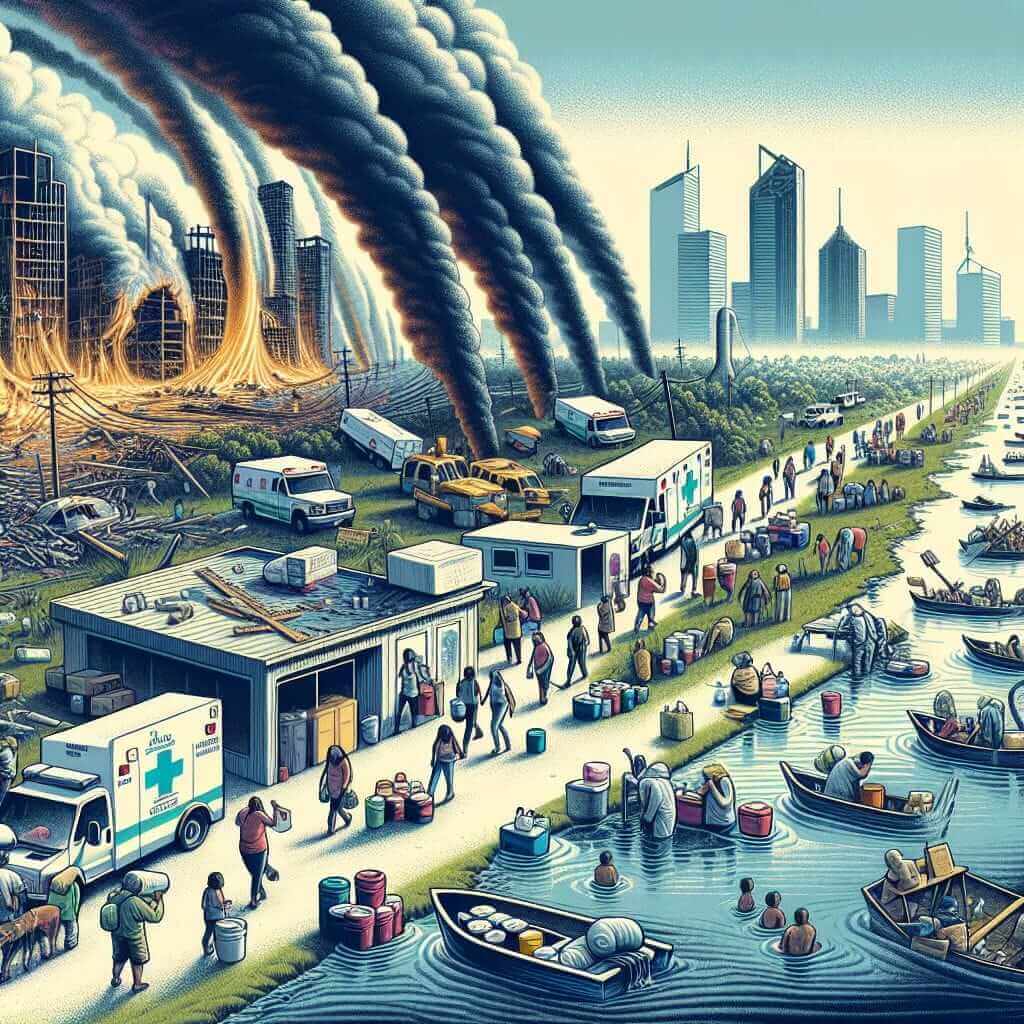The IELTS Reading test evaluates a candidate’s ability to understand and interpret English reading materials. Climate change and its impacts on human health is a recurring theme in past IELTS exams, making it an essential topic for preparation. As climate change remains a pressing global issue, it’s highly probable that this topic will appear in future IELTS exams.
Nội dung bài viết
Practice IELTS Reading Test
Let’s dive into a practice reading test on the topic “What are the effects of climate change on human health?” This practice test is designed using a Medium Text format to closely mimic the actual IELTS reading examination.
Reading Passage
Climate change has far-reaching and profound impacts on human health. From heatwaves to altered patterns of infectious diseases, the consequences are becoming alarmingly evident. High temperatures can lead to heat stress, dehydration, and in severe cases, heatstroke. Vulnerable populations, especially the elderly and those with pre-existing health conditions, are particularly at risk. Additionally, extreme weather events such as hurricanes and floods not only cause direct injuries but also disrupt crucial infrastructure, impeding access to clean water and healthcare services.
 Climate Change Impact on Health
Climate Change Impact on Health
Another significant effect of climate change is the alteration in the distribution of vector-borne diseases. Warmer temperatures and changing precipitation patterns facilitate the spread of diseases such as malaria, dengue fever, and Lyme disease to new regions. This expansion poses challenges for public health systems, which must adapt to these emerging threats.
Moreover, increasing levels of carbon dioxide and other pollutants in the atmosphere contribute to reduced air quality, exacerbating respiratory diseases like asthma and chronic obstructive pulmonary disease (COPD). Mental health is also impacted, with the stress of dealing with climate-related disasters contributing to anxiety, depression, and post-traumatic stress disorder (PTSD).
Lastly, climate change affects food security, leading to malnutrition and undernutrition, particularly in vulnerable populations. Changes in agricultural productivity and water scarcity affect food availability and quality, thereby impacting human health on multiple fronts.
Questions
Multiple Choice
-
What are the direct health impacts of extreme weather events?
a. Heat stress and dehydration
b. Direct injuries and infrastructure disruption
c. Spread of vector-borne diseases
d. Reduced air quality -
How does climate change exacerbate respiratory diseases?
a. By increasing carbon dioxide levels
b. By altering precipitation patterns
c. By affecting food security
d. By increasing temperatures
Identifying Information (True/False/Not Given)
- Climate change only affects the health of elderly people. (True/False/Not Given)
- All regions are equally affected by the spread of vector-borne diseases due to climate change. (True/False/Not Given)
- Climate-change-related anxiety is linked to direct injuries from natural disasters. (True/False/Not Given)
Summary Completion
Complete the summary using the words in the box below.
Climate change affects human health in numerous ways. High temperatures can lead to and in severe cases, . Vector-borne diseases such as and can spread to new regions. Poor air quality can exacerbate ___ diseases.
(Options: respiratory, malaria, heatstroke, heat stress, dengue fever)
Answer Key and Explanations
-
b. Direct injuries and infrastructure disruption
Explanation: The passage states that extreme weather events cause direct injuries and disrupt healthcare services. -
a. By increasing carbon dioxide levels
Explanation: The passage explains that increased pollutants in the atmosphere contribute to respiratory diseases. -
False
Explanation: The passage mentions vulnerable populations, but not exclusively the elderly. -
Not Given
Explanation: The passage does not provide information about the equal impact on all regions. -
False
Explanation: The passage discusses climate-change-related anxiety associated with disasters but not specifically linked to direct injuries.
Summary Completion
- heat stress
- heatstroke
- malaria
- dengue fever
- respiratory
Common Mistakes
Candidates often confuse the terms around climate change impacts. It’s crucial to differentiate between direct health impacts (like heatstroke) and indirect impacts (like malnutrition due to food insecurity). Misinterpretation of True/False/Not Given questions is another common error. Always base your answers strictly on the passage provided.
Vocabulary
- Heatstroke (n.): /ˈhiːt.stroʊk/ – a condition caused by excessive exposure to high temperatures.
- Vector-borne diseases (n.): diseases transmitted by vectors like mosquitoes.
- Respiratory diseases (n.): illnesses affecting the lungs and breathing.
- Malnutrition (n.): /ˌmæl.njʊˈtrɪʃ.ən/ – lack of proper nutrition caused by insufficient food intake.
Grammar Highlight
Conditional Sentences:
- Type 1: If + Present Simple, … will + Infinitive
- Example: “If temperatures rise, it will lead to more heat stress.”
- Type 2: If + Past Simple, … would + Infinitive
- Example: “If the healthcare systems were better prepared, they would handle the spread of diseases more effectively.”
Conclusion
Mastering the IELTS Reading section requires continuous practice and familiarization with a wide range of topics, including timely and significant ones like climate change and its effects on human health. Practice consistently, review your mistakes, and expand your vocabulary and grammatical range to excel in the IELTS exam.
For more practice and resources on climate change’s impact on health, check out our articles on global public health impacts and environmental pollution.


